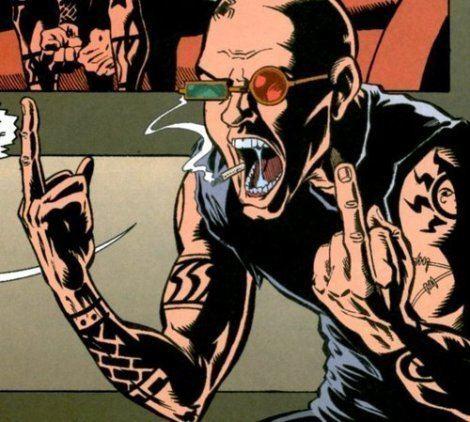As the character Spider Jerusalem so aptly put it, “I hate it here.”
Each morning, I open my eyes to a reality stripped of its vibrancy, reduced to harsh outlines of anger and tribal conflicts. My screens are a battleground of viral images and trending phrases, where people gleefully pummel each other as if personal identity can only be forged by tearing someone else’s to shreds. I once believed in the simple connections—unexpected conversations between strangers, fleeting smiles on crowded streets—but now these small kindnesses feel like acts of rebellion against a prevailing current of indifference and cruelty.
The bonds I thought united us have splintered into opposing factions: the zealots “owning the libs,” the slavering apologists for distant authoritarian regimes, and countless others poised to strike at the first sign of vulnerability. What became of our collective compassion—our capacity to understand one another, to build bridges across difference?
It seems lost amid the cacophony of outlandish conspiracy theories and sanctimonious proclamations. I drift through the debris of the world I once understood, utterly disenfranchised and haunted by the question of whether anything authentic can ever emerge from these ruins.
Each evening, the glow of my phone hums with the promise of fresh outrage, yet delivers nothing but another serving of curated venom. I watch as the comment threads twist into mob chants, each participant clutching a banner of righteousness, eager to burn the next heretic at the digital stake. Even the laughter that once punctuated my days now comes loaded with irony—never genuine, always an inside joke at someone else’s expense. I find myself longing for the tactile: the weight of a book in hand, the grain of wood beneath a park bench. Yet these simple pleasures feel illicit, petty distractions from the relentless parade of ideological carnage.
In fleeting moments of clarity, I remember what it felt like to sit beside a friend in silence, sharing the soft thrum of our own breathing. No tweets, no filters—just the unspoken understanding that we exist together in this vast, unruly world. But those memories, seared bright against the grey static of today, only deepen the ache. They remind me that connection once came as naturally as breathing, before the platforms taught us to monetize outrage and monetize each other.
I’ve tried to claw my way back: deleting apps, switching off notifications, even wandering the city without so much as a phone in my pocket. Yet the anxiety remains, a hollow echo in my chest, as though the world beyond the screen has been erased, leaving only the ghosts of half-formed debates and pixelated hostilities. What will it take to awaken from this collective hysteria? Is there a path through the noise, or are we destined to choke on our own rage?
For now, I sit at the window, watching twilight spill across rooftops, wondering whether the spark of something real can still be fanned from these embers of despair. Perhaps tomorrow I’ll find the will to step outside this echo chamber for good—if only to remember what it means to be alive, rather than merely enraged.
